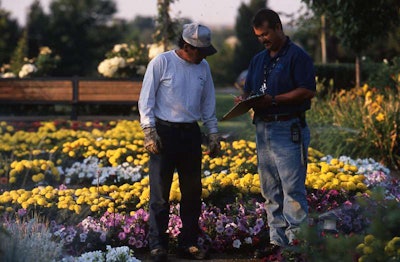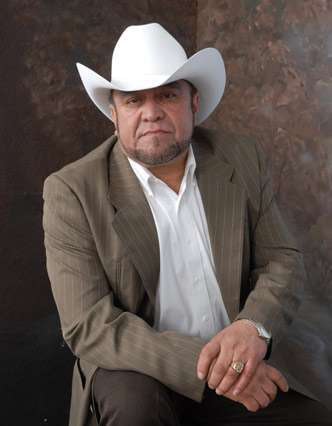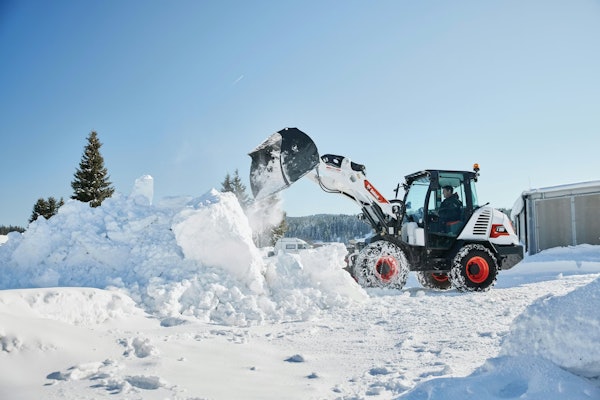 CoCal performs commercial landscape maintenance for a wide variety of customers.
CoCal performs commercial landscape maintenance for a wide variety of customers.Photo: CoCal Landscape
During the National Association of Landscape Professional’s (NALP) annual “Legislative Day,” many landscapers meet with their members of Congress to discuss industry issues.
One key concern that has been a regular topic over the past few years is H-2B and the returning worker exemption. Colorado is the second-highest user of the H-2B program and Jesus “Chuy” Medrano, founder and owner of CoCal Landscape, based in Denver, Colorado, is often one of the leaders of the lobbying charge.
Originally from Chihuahua, Mexico, Medrano started his landscaping business in 1992. He initially hired undocumented workers, offering them a chance, just like he was given when he first entered the country before becoming a citizen, but then decided that breaking the law was not worth risking his business.
He turned to a temporary worker visa program and recruited his first crew of nine workers in 1997. As the business grew, so did the number of migrant workers. CoCal now employs 160 H-2B workers, making up 40 percent of the landscaping business’ total workforce.
“Those guys, without pushing them, do the work of 1 ½ people already here,” Medrano told The Washington Post. “But it started bothering me that I was relying so much on them. I knew one day that we weren’t going to get them. And that was this year.”
Last year the returning worker exemption expired and Congress chose not to reinstate the program for the fiscal year of 2017. The exemption allowed all foreign workers who held an H-2B visa in the past three years to not count toward the law’s annual cap of 66,000, cutting 19,000 available visas.
 Jesus “Chuy” Medrano
Jesus “Chuy” MedranoCoCal was denied its 160 visas for its Mexican laborers and Medrano tried his best to hire American workers to take their place. CoCal advertised on digital billboards in English and Spanish, raised the hourly wage for unskilled workers to $13.95 and interviewed anyone who walked in.
“We hope they’re breathing and they have a pulse, and we hire them,” Medrano told The Washington Post.
The company stopped firing absentee workers and coordinated with mothers who could work while their children were at school. Despite all of this, CoCal was still understaffed and new employees would walk off the job after a few days or said they wouldn’t do the work for the pay.
Medrano hired 222 people in February and 73 remain as of right now. Experts say that competitive wages are one of the best ways to attract American workers, but Medrano says that if he raised the laborers’ income any higher he’d drive himself out of the market.
The company struggled over the spring and summer as quality levels dropped with managers busy pitching in. It lost $1.7 million in contracts.
Then in July after continual lobbying by NALP and other proponents of H-2B, the Department of Homeland Security authorized 15,000 additional worker visas. Petitioners were required to prove their business was facing irreversible damage if they could not hire H-2B workers during the fiscal year of 2017.
Medrano’s company jumped on the opportunity and its request was approved within two weeks. CoCal spent more than $32,000 to recruit and secure visas for its Mexican workers, and had its workers a little before Labor Day.
The return of familiar workers has Medrano hopeful that CoCal can finish out the season strong and renew as many contracts as possible, but he knows he can no longer be dependent on H-2B when everything is left to chance.
Part of the struggle is finding American workers willing to commit to a company that cannot promise year-round employment. CoCal lays off two-thirds of its staff in the winter, keeping only a third for snow and ice removal.
Other companies that had a dependence on H-2B have not been so lucky, as only last year Litzenburger Landscape, based in Harbor Springs, Michigan, had to close its doors after 31 years of business when it was unable to get its worker visas processed in time for the growing season.
H-2B workers made up half of its workforce and all of them were returning workers who had been with company for 10 years or more. Litzenburger had tried to recruit locally as well but without much success.










